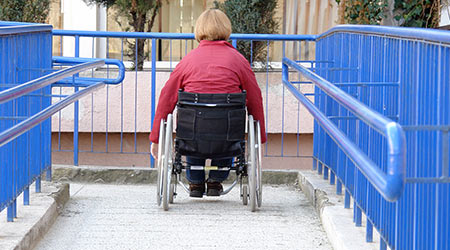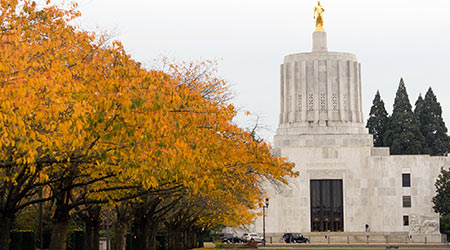
ADA: Facilities Continue Upgrades for Accessibility
November 29, 2017
Congress enacted the Americans with Disabilities Act (ADA) in 1990 with the goal of prohibiting discrimination in employment, public services, public accommodations, and telecommunications. Unfortunately, many institutional and commercial facilities continue to present accessibility challenges. As a result, ensuring accessibility remains a top priority for many maintenance and engineering managers. Take the case accessibility problems documented at one major Eastern university.
Many buildings at the campus of the George Washington University in Washington, D.C., have been updated to be more accessible to people with disabilities in the past few years, but eight students with disabilities say that many campus buildings still lack proper accommodations. Those students say parts of campus are uncomfortable, difficult or even impossible to navigate without extensive renovations, according to an article in the GW Hatchet.
Click here to learn more about strategies for avoiding ADA lawsuits.
Chelsea Burkhart, a junior who has postural orthostatic tachycardia syndrome, says because she sometimes struggles to walk up stairs, she has trouble meeting with professors and teaching assistants who have offices in aging townhouses.
"Some professors again don’t understand the idea of an invisible illness, where whenever I look fine, they don’t understand why I would want to miss class and just think that I’m just trying to get a couple more hours of sleep," she says.
In the last few years, students have registered with Disability Support Services (DSS) in record numbers. The office manages academic and lifestyle accommodations for 1,300 students, officials said.
Click here to learn more about one university upgrades to improve restroom accessibility.
Last April, Caroline Laguerre-Brown, the vice provost for diversity, equity and community engagement, says not all buildings on campus are currently up to the standards set by the Americans with Disabilities Act. The law requires that when buildings undergo renovations, they must be updated to include accommodations that comply with ADA standards.
Some campus townhouses on campus have yet to be renovated since the law was passed, and students who cannot access those buildings should reach out to DSS for assistance, she says. Students with disabilities say the psychology building is difficult to access because it has no elevators, preventing them from visiting professors' office hours.
This Quick Read was submitted by Dan Hounsell, editor-in-chief of Facility Maintenance Decisions, dan.hounsell@tradepressmedia.com.
Next
Read next on FacilitiesNet












